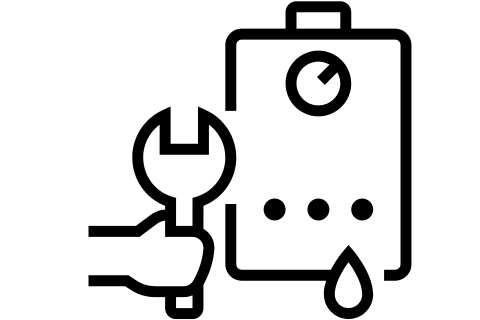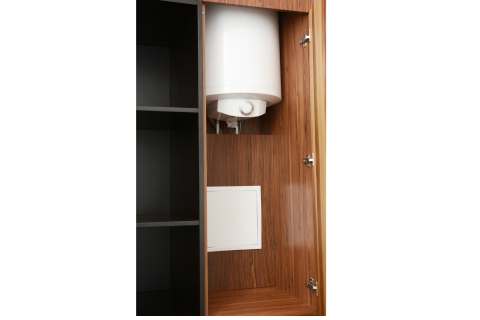Things to Consider Before Installing Boiler in Bedroom
When considering the installation of a gas boiler in a bedroom, several factors must be carefully evaluated to ensure safety, compliance, and practicality.
Consulting with qualified professionals and obtaining necessary permits are imperative steps in the planning and execution of gas boiler installations in residential bedrooms.
Installing boilers in a bedroom Overview
- Adherence to legal and safety regulations governing boiler installations is paramount, encompassing ventilation requirements, proximity to sleeping areas, and compliance with Gas Safety regulations.
- Homeowners must assess the necessity of a room-sealed boiler to mitigate carbon monoxide risks and ensure safe operation of a boiler in a bedroom.
- Proper ventilation, carbon monoxide detectors, and noise considerations are essential aspects to address to safeguard occupants’ well-being and ensure optimal functionality of the boiler system.
Boiler In a Bedroom Legality and Safety Regulations
When getting a gas boiler installed in a bedroom, it’s important to adhere to legality and safety regulations to ensure the well-being of occupants and compliance with legal standards.
These regulations govern various aspects of boiler installations, including ventilation requirements, proximity to sleeping areas, and adherence to Gas Safe regulations.
Compliance with these regulations is necessary to prevent potential hazards such as carbon monoxide leaks and ensure the safe operation of the boiler system within confined spaces like bedrooms.
Engaging qualified professionals and obtaining necessary permits are vital steps in following compliance with legality and safety regulations during the installation process.
Get new boiler quotes online >
Why do you need to install a room-sealed boiler in a bedroom?
Installing a room-sealed boiler in a bedroom is vital for many different reasons related to safety and health. Firstly, a room-sealed boiler is designed to draw air for combustion from outside the property, decreasing the risk of carbon monoxide poisoning.
By sealing the combustion chamber, room-sealed boilers prevent the release of harmful gases into the living space, making sure of the safety of occupants, particularly in confined areas like bedrooms.
Additionally, room-sealed boilers help maintain air quality and reduce the risk of respiratory issues associated with exposure to combustion by- products.
Overall, installing a room-sealed boiler in a bedroom prioritises the safety and well-being of individuals by lowering the potential hazards associated with gas appliances.

Is sleeping in the same room as a boiler safe?
Sleeping in the same room as a boiler raises concerns regarding safety and potential health risks. While it may seem convenient, there are important considerations to evaluate.
The primary concern is the risk of carbon monoxide exposure, which can result from malfunctioning boilers or inadequate ventilation. Carbon monoxide is a colorless, odorless gas that can be deadly if inhaled in high concentrations.
Additionally, boilers may generate noise and vibrations during operation, which can disrupt sleep patterns and cause discomfort. To ensure safety and comfort, it’s advisable to avoid sleeping in the same room as a boiler and to make proper ventilation your main priority.
Get a Boiler Service >Regulations to fit the boilers in the bedroom
Regulations for fitting modern boilers in bedrooms outline specific requirements aimed at ensuring safety and compliance with legal standards. These regulations typically include:
Ventilation Requirements
Regulations mandate adequate ventilation in rooms housing a new boiler to prevent the buildup of harmful gases, such as carbon monoxide. Proper ventilation helps maintain air quality and lower the chance of health risks associated with a gas water heater and appliances.
Proximity to Sleeping Areas
Regulations often specify minimum distances between boilers and sleeping areas to reduce the risk of exposure to combustion byproducts. Keeping boilers away from sleeping areas and helps lower the chance of potential hazards and ensures occupants’ safety.
Compliance with Gas Safe Regulations
Gas Safe regulations govern the installation, servicing, and operation of gas appliances, including boilers. Compliance with Gas Safe regulations is needed to prevent gas leaks, carbon monoxide poisoning, and other safety hazards.
Use of Room-Sealed Boilers
In some jurisdictions, regulations may require the use of room-sealed boilers in bedrooms to minimize the risk of carbon monoxide exposure. Room-sealed boilers draw air for combustion from outside the property, enhancing safety in confined spaces.
Professional Installation
Regulations emphasise the importance of professional central heating installation by qualified engineers or contractors. Engaging certified professionals ensures proper installation, compliance with regulations, and safe operation of modern boilers.
Get a Boiler Service >Why to Always use a Gas Safe registered engineer
Using a Gas Safe engineer when getting a boiler installed in your bedroom is highly important for reasons related to safety and compliance.
Firstly, Gas Safe engineers are trained and certified to work safely with gas appliances, ensuring that the installation is conducted to the highest standards and by legal regulations. They possess the necessary expertise to assess the suitability of the installation location, making sure of proper ventilation, and address any potential safety concerns.
Additionally, employing a Gas Safe engineer provides assurance that the installation is performed correctly, minimising the risk of gas leaks, carbon monoxide poisoning, and other hazards associated with improper installation.
Ultimately, prioritising the services of a Gas Safe engineer guarantees the safety and well-being of occupants and ensures compliance with regulatory requirements governing the installation of new modern boilers in residential settings.
Other rooms suitable for a boiler installation

Utility Room
Utility rooms are commonly chosen for boiler installations due to their functional layout and proximity to plumbing and heating systems. They provide ample space for housing boilers and associated equipment while offering easy access for maintenance and servicing.
Kitchen
Kitchens are another popular location for boiler installations, especially in homes where space is limited. Installing a boiler in the kitchen ensures convenient access to hot water for cooking, cleaning, and other household tasks.
boiler rooms
Dedicated boiler rooms are designed specifically to accommodate boilers and associated equipment. These rooms typically feature proper ventilation, insulation, and safety measures to ensure efficient and safe operation of the boiler system.
Garage
Garages are suitable for boiler installations in properties where space is abundant and ventilation requirements can be met. Installing a boiler in the garage keeps it separate from living areas while providing easy access for boiler servicing.
Cupboard
installing the combi boiler in a cupboard helps to minimise noise and visual impact within the living space. The cupboard provides a designated and enclosed area for the boiler, reducing noise transmission to adjacent rooms and ensuring a tidier appearance in the home.
where should you install a boiler?
Boilers should be installed in well-ventilated areas away from sleeping quarters to minimise exposure to carbon monoxide and noise disturbances. Consulting with heating professionals helps determine the most suitable location based on safety and practical considerations.
Get a Boiler Service >Do you get Additional Warmth from a Boiler in your Bedroom?
Having a boiler in your bedroom may provide some additional warmth, especially during colder months. However, the primary purpose of a boiler is to provide hot water for heating and domestic use rather than directly warming a room.
While the boiler itself generates heat during operation, the amount of warmth it contributes to the bedroom is typically minimal compared to dedicated heating sources such as radiators or underfloor heating systems.
The warmth generated by a boiler in the bedroom may be noticeable in close proximity to the unit, but it is unlikely to significantly impact the overall temperature of the room. Additionally, factors such as insulation, room size, and ventilation play a significant role in determining the effectiveness of heating within the bedroom.
How to avoid carbon monoxide poisoning

To prevent carbon monoxide poisoning when installing a boiler in a bedroom, several precautions should be taken. Firstly, it’s essential to ensure that the boiler is installed by a qualified Gas Safe engineer to guarantee proper ventilation and safe operation.
Additionally, installing a carbon monoxide detector and carbon monoxide alarm in the bedroom is vital. These devices can detect the presence of carbon monoxide gas, alerting occupants to potential leaks or build-up before it reaches dangerous levels.
Regular servicing of the boiler by Gas Safe engineers should be done to identify and address any issues promptly. By implementing these safety measures, homeowners can effectively lower the risk of carbon monoxide poisoning and ensure a safe living environment.
FAQ’S
Is it legal to have a boiler in your bedroom?
The legality of having a boiler in your bedroom depends on local building codes, regulations, and safety standards. In many jurisdictions, there are specific regulations governing the installation of boilers in residential bedrooms. These regulations typically outline requirements for ventilation, proximity to sleeping areas, and compliance with safety standards such as Gas Safe regulations.
While it may be legal to install a boiler in a bedroom under certain conditions, it’s essential to ensure compliance with all applicable regulations and safety standards. Additionally, homeowners should consider practical considerations such as ventilation, noise, and accessibility when determining the suitability of installing a boiler in a bedroom.
Is it safe to have a boiler in your bedroom?
Having a boiler in your bedroom poses potential safety concerns that should be carefully evaluated. While it may seem convenient to have the boiler in close proximity for easy access to hot water, there are important considerations to keep in mind.
Boilers may generate noise and vibrations during operation, which can disrupt sleep patterns and cause discomfort. The heat emitted by the boiler may also contribute to discomfort, especially during warmer months or in poorly ventilated spaces.
To mitigate these risks, it’s essential to ensure proper installation, ventilation, and servicing of the boiler often along with your central heating system to prevent any risks. Installing carbon monoxide detectors and alarms in the bedroom and adjacent areas can provide early warning of any potential leaks or build up of carbon monoxide gas supply.